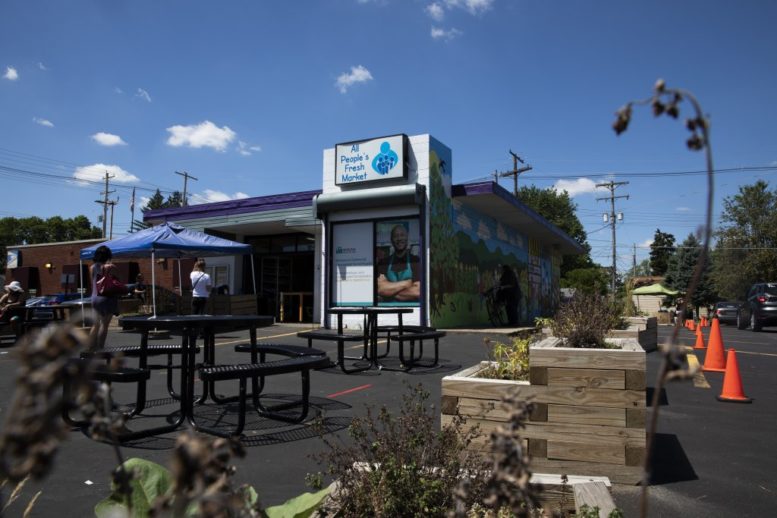Ohioans have seen some respite from high fuel costs in recent months. But those who provide food to millions of poor people in the state say their situation is only deteriorating.
Global supply-chain problems, labor shortages, the coronavirus pandemic, climate change and other megatrends are all combining to make them worry for the first time that they just won’t have enough food for everybody who needs it, Lisa Hamler-Fugitt, executive director of the Ohio Association of Foodbanks, said on Monday.
“We’re down about a sixth and it’s declining,” she said, referring to food supplies, particularly from the U.S. Department of Agriculture. At the same time, she said, demand is spiking because of high prices at the grocery store, increasing costs for housing and utilities and health care.
That means food at Ohio’s foodbanks is “going out a hell of a lot faster than it’s coming in,” she said.
Also adding to the problem is that logistical bottlenecks have increased lead times exponentially. Food that used to come within two or three weeks of being ordered is now taking as long as two to three months to arrive.
[RELATED LOCAL: Brown Bag reaching out to help more people in the face of rising prices & shortages]
That means foodbanks need money now if they’re to have adequate food this winter, when increasing utility costs seem likely to put an even tighter squeeze on people.
“I think things are going to get a whole lot darker and more bleak before they get a lot better,” Hamler-Fugitt said, adding “We’re desperately worried about food.”
The U.S. Census Bureau’s Household Pulse Survey estimates that as of Aug. 8, nearly 762,000 — or 6.5% — of Ohioans sometimes or often couldn’t get enough to eat during the previous seven days. That’s a 20% increase over August 2021.
To be eligible for food pantry assistance in the Buckeye State, you have to earn less than 200% of the federal poverty level, $55,500 a year for a family of four. In Ohio nearly 30%, or 3.4 million, earned less than that in 2019, the Kaiser Family Foundation reported.
Qualified people applying for foodbank assistance get a referral. But, Hamler-Fugitt warned, “Just because you’re on a list doesn’t mean they’ll be able to serve you.”
She provided an anecdote to illustrate her point. Leaving her home in Fairfield County at 5:30 a.m. last Thursday, Hamler-Fugitt saw a line of taillights in front of a church-based pantry that didn’t open until 9 a.m. People were getting there early to get to the front of the line.
“If you don’t need food, you don’t get up at the crack of dawn to go wait at a food pantry,” she said. “That shows how desperate people are.”
In another sign of growing desperation, senior citizens are showing up to Ohio foodbanks in unprecedented numbers, Hamler-Fugitt said. Typically, they’re reluctant as a group to go, but Ohio foodbanks served 635,000 seniors in the second quarter this year. The facilities had never seen 600,000 in a single quarter prior to that, she said.
“They are the canaries in the coal mine,” Hamler-Fugitt said. “They’re usually the last ones to show up and now they’re showing up in droves.”
Ohio foodbanks have taken some pretty dramatic steps to deal with the crisis. For example, many are rationing food, typically by cutting a five-to-seven day allotment of food by two days.
Meanwhile, they continue to appeal to Gov. Mike DeWine for $50 million in emergency funding as the state sits on unprecedented balances of $7.4 billion. In June, DeWine spokesman Dan Tierney said that the governor’s preference was to spend American Rescue Plan Act funds — which make up about $1.3 billion in addition to those balances — on capital projects because it is non-recurring income.
Hamler-Fugitt said food should be seen as the most basic capital project.
“You eat every day or you die. I don’t know what else to say,” she said. “A hungry kid can’t learn. If he grows up to be an adult, he can’t earn. And for hungry seniors, it’s a one-way ticket to the nursing home.”
More headlines from Ohio Capital Journal:





